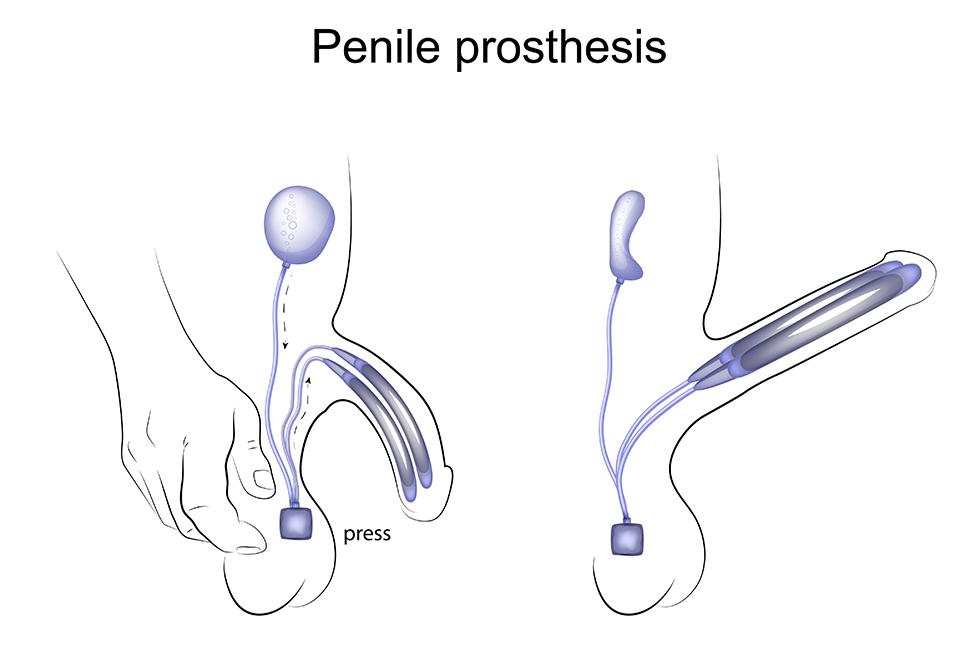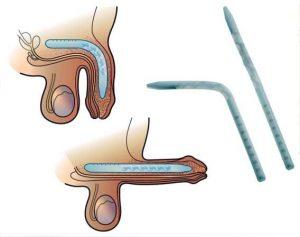Penile Implantation - Single: Restoring Sexual Function through Surgical Intervention
Understanding the Procedure, Benefits, Risks, and Recovery
Introduction: Penile implantation, also referred to as penile prosthesis surgery, is a highly effective treatment option for individuals experiencing erectile dysfunction (ED) that does not respond well to other non-invasive methods. In cases where medications, vacuum erection devices, or injections have proven ineffective, a penile implant offers a long-term solution to restore sexual function. This article explores the single penile implantation procedure, its benefits, associated risks, and the recovery process.
 Understanding Single Penile Implantation:
Understanding Single Penile Implantation:
Single penile implantation involves the surgical placement of a prosthetic device within the penis to enable erections. The implant is typically composed of inflatable cylinders, a fluid reservoir, and a pump, all of which are discreetly positioned within the body. The single implant option utilizes a hydraulic system that allows the user to manually pump fluid into the cylinders, producing an erection suitable for sexual intercourse.
Benefits of Single Penile Implantation:
Enhanced Sexual Function: Single penile implantation enables men to achieve and sustain erections, leading to improved sexual satisfaction and intimacy.
 Natural Appearance and Discretion: The implant is concealed within the body, resulting in a natural appearance and allowing individuals to maintain their privacy.
Natural Appearance and Discretion: The implant is concealed within the body, resulting in a natural appearance and allowing individuals to maintain their privacy.
On-Demand Erections: With the ability to manually control the erection process, individuals can achieve an erection when desired, without relying on external aids or medications.
Reliable and Long-lasting: Penile implants have a high success rate and are designed to be durable, providing a reliable solution for long-term sexual function restoration.
Risks and Considerations:
As with any surgical procedure, single penile implantation carries some inherent risks. These risks may include infection, bleeding, scarring, device malfunction, or changes in sensation. It is crucial for individuals considering this procedure to discuss potential risks and complications with their healthcare provider to make an informed decision.
Recovery Process:
Following the surgery, a short hospital stay is usually required for monitoring and pain management. The recovery period generally involves abstaining from sexual activity for a few weeks to allow for proper healing. Postoperative care instructions, including regular cleaning of the implant, will be provided by the healthcare team. Full recovery may take several weeks, during which gradual resumption of sexual activity is advised.
Conclusion:
Single penile implantation, or penile prosthesis surgery, offers a reliable and effective solution for individuals with erectile dysfunction that does not respond to other treatments. By understanding the procedure, benefits, risks, and recovery process associated with single penile implantation, individuals can make informed decisions about their sexual health and discuss the possibility of this intervention with their healthcare provider. It is important to consult with a qualified healthcare professional to determine if single penile implantation is the right option based on individual needs and circumstances.
Yes, penile implantation provides a long-term solution for restoring sexual function in individuals with erectile dysfunction, allowing them to achieve erections when desired.
The single penile implant is discreetly positioned within the body, resulting in a natural appearance, and it remains hidden during both flaccid and erect states.
Risks may include infection, bleeding, scarring, device malfunction, and changes in sensation. It is important to discuss these potential risks with a healthcare provider before undergoing the procedure.
The recovery period typically involves a few weeks of abstaining from sexual activity to allow for proper healing. Full recovery may take several weeks, with gradual resumption of sexual activity advised.
Yes, the penile implant can be removed through a surgical procedure if necessary, although this is uncommon and usually performed only if complications arise or the individual wishes to have it removed.
We are associated with experienced and highly skilled medical professionals. We use the latest medical technology available in the world and we provide medical services in collaboration with JCI & NABH Certified hospitals only. Our services include various types of treatment and organ restructuring and transplant.
